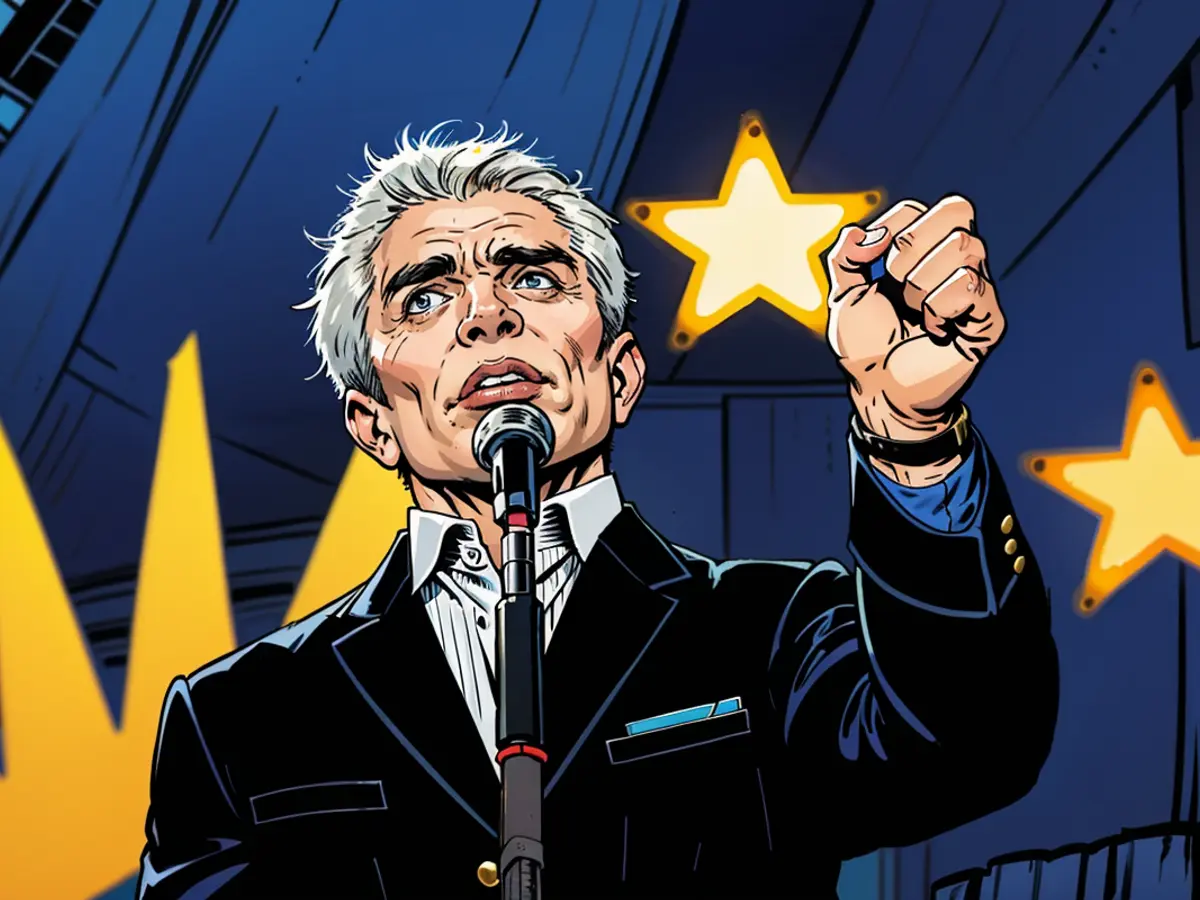Georgia's relationship with the Western world remains uncertain, as all parties involved declare triumph in the election.
Georgian Dream, led by billionaire founder Bidzina Ivanishvili, portrayed the election as a major event determining whether Georgia would lean towards the West or shift back towards Russia, amid the ongoing conflict in Ukraine.
Preliminary results with 70% of polling stations reporting, showed the incumbent party garnering 53% of the vote, according to the election commission. However, the fractured pro-Western opposition parties claimed a collective victory.
Competing exit polls provided contrasting projections for the election. The pro-ruling party channel, Imedi TV, projected a 56% win for Georgian Dream. On the other hand, opposition-aligned exit polls indicated significant gains for opposition parties.
Ivanishvili, the enigmatic backer of Georgian Dream and former prime minister, declared victory and commended the Georgian people. The opposition, however, celebrated their purported victory and urged Ivanishvili to concede.
Tina Bokuchava, leader of the United National Movement party affiliated with former President Mikheil Saakashvili, told Reuters that the opposition had secured a substantial 10% margin of victory.
"Most people are unlikely to trust Bidzina Ivanishvili's claim of a government majority given a big dose of skepticism," Bokuchava remarked.
"We believe the Georgian public has voted decisively for a future in the heart of Europe, and no amount of posturing will change that."
Pivotal election
Georgian President Salome Zourabichvili, a former ally of Georgian Dream turned critic whose powers are largely ceremonial, and independent domestic election monitors had accused Georgian Dream of widespread vote-buying and other electoral manipulations leading up to the election.
Georgian Dream did not immediately comment on the request for comment. Ivanishvili, who built his fortune in Russia in the 1990s, assumed power in 2012 advocating for pro-Western views, while maintaining a pragmatic policy towards Russia.
However, Ivanishvili has since soured on the West, accusing a "Global War Party" of wanting to pull Georgia into conflict with Russia, while still claiming that Georgia is on track to join the EU.

Some Georgians expressed a desire for change.
"I voted for freedom and for the European option," said Irakli Andronikashvili, a voter in Tbilisi, adding that he sought a government that was "more progressive, less corrupt, and more sensible."
After the Soviet Union's collapse, Georgia was one of the most pro-Western states. The road from Tbilisi's airport is named after former US President George W. Bush.
Relations between Georgia and the West, however, have deteriorated sharply since Russia's invasion of Ukraine in February 2022. Unlike many Western allies, Georgia declined to impose sanctions on Russia, while Georgian Dream's rhetoric has grown increasingly pro-Russian.
Georgian Dream has been criticized by its Western allies for its allegedly authoritarian tendencies. Hungarian Prime Minister Viktor Orban congratulated Georgian Dream on its "landslide victory."
The pro-opposition Formula exit poll suggested that the ruling party would be the largest party, but the combined opposition would hold 83 seats.
The opposition factions in Georgia are deeply divided, and it is uncertain if they will be able to work together if they deprive Georgian Dream of its majority.
Sandro Dvalishvili, a 23-year-old Georgian Dream activist, told Reuters last week that Georgia would face "danger" if his preferred party lost at the polls.
"If it turns out that we don't win, for me that will be very bad. Because I don't see another force that will bring peace and stability to our country," he said.
The election results, with Georgia leaning towards potential alliances, have global implications. The incumbent party's lead, if confirmed, could signal a shift in Georgia's alignment, moving away from its traditionally pro-Western stance and toward more affiliations with Europe or even Russia.
Amidst the fractured political landscape in Europe, the outcome of this pivotal election in Georgia could potentially resonate with other European nations, influencing their perceptions and policies towards both the West and Russia.








